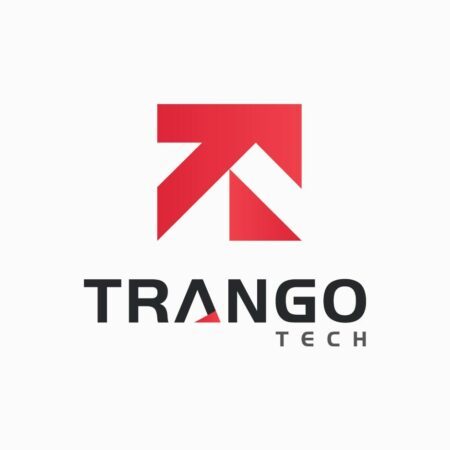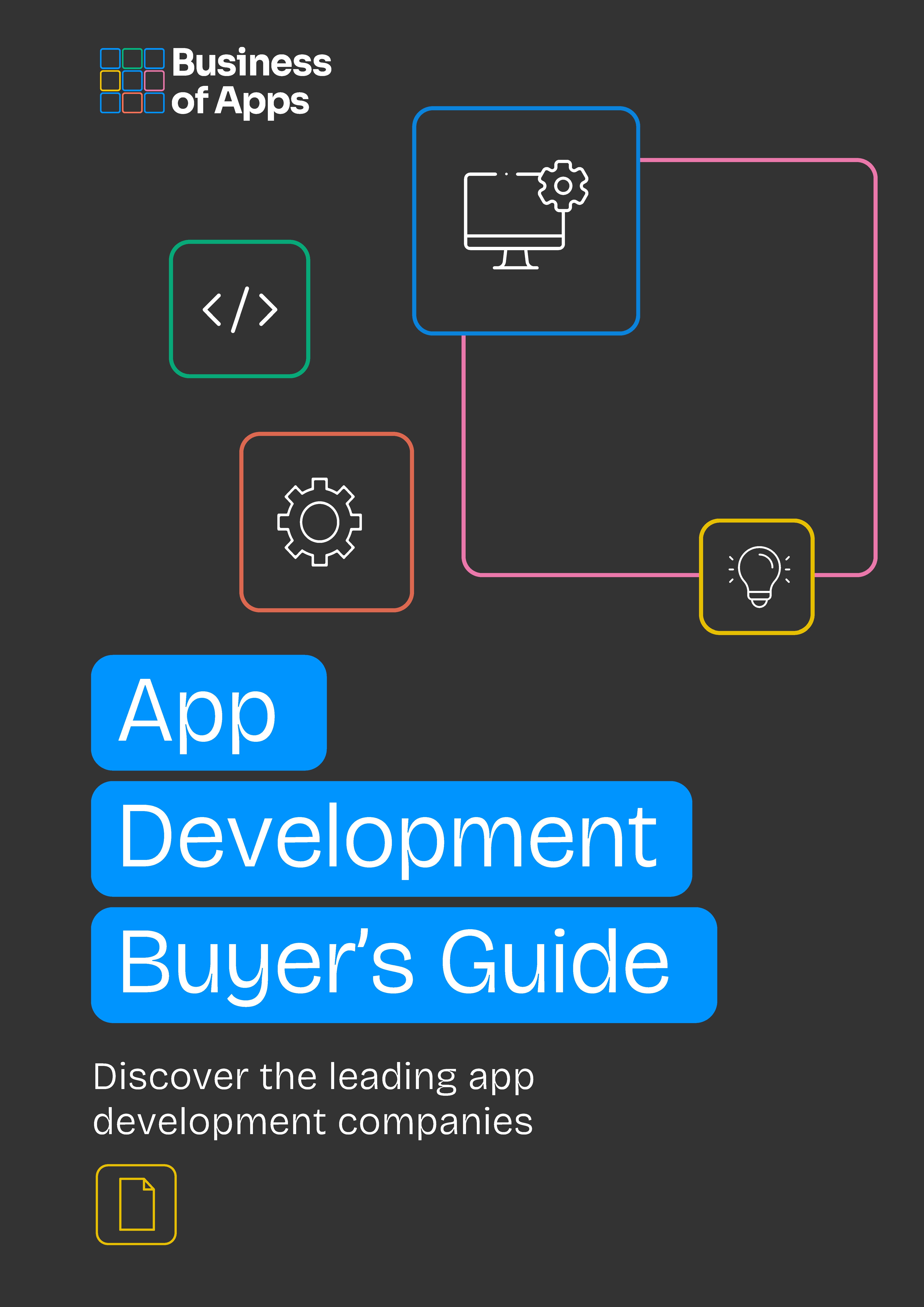This guide will cover the best logistics app development services, how much they cost, top app development features, and how you stand to benefit from using app development companies.
The importance of developing logistics apps today speaks for itself. The logistic software market is projected to grow from USD 10.9 billion in 2024 to USD 22.3 billion by 2032. The market is anticipated to grow at an annual growth rate of 8.31%, and logistics apps are a key part of this.
Yet building and developing successful logistics apps requires a number of must-have features to be implemented.
For example, GPS tracking enables businesses and customers to monitor the exact location of shipments in real time, ensuring transparency throughout the delivery process. While live updates and notifications provide real-time notifications for delivery status, delays, or potential disruptions, allowing for proactive management.
That’s without mentioning the importance of having multi-stop planning, order processing, and mobile (and desktop) access features. In other words, it can be challenging to know where to start if you’re entering the world of logistics app development.
Fret not; we’ll cover everything you need to know.
What is logistics app development?
Logistics app development refers to the process of designing and building mobile apps that facilitate the management (and optimization) of logistics and supply chain operations. These apps are tailored to the needs of businesses involved in the transportation and distribution of goods.
App Development Buyer's Guide
Download our App Development Buyer’s Guide to get a full list of the best service providers on the market to choose from. You will also learn about types of app developers, different app development platforms, app developer locations, app development costs, how to select the right one for your business, as well as the questions to ask any of those companies you will be evaluating.
The development process typically involves identifying the key requirements of the logistics system, such as whether the app will be used for fleet management, warehouse optimization, or last-mile delivery. Based on these requirements, developers then design a user-friendly interface and integrate features such as GPS tracking.
Logistics app developer example

Source: Magora
A critical aspect of logistics app development is ensuring seamless integration with third-party systems such as ERP (known as Enterprise Resource Planning), CRM (known as Customer Relationship Management), and telematics platforms. This integration allows businesses to synchronize their logistics data.
Scalability is another key consideration, as businesses need solutions that can grow alongside their operations. This often involves creating modular features that can be expanded or customized as demand increases.
Logistics app development, therefore, plays a vital role in helping companies optimize their supply chain performance, reduce costs, enhance customer satisfaction, and gain a competitive edge in a highly dynamic industry, as we’ll discuss later on.
Featured Logistics App Development Companies
The best logistics app developers
Logistics app developers are companies and professionals who specialize in creating apps for the logistics and supply chain industry.
These apps assist businesses in efficiently managing transportation, warehousing, inventory, delivery tracking, and fleet management. Logistics apps typically enhance supply chain operations through real-time tracking, automation, and data analytics.
We’ve listed the best logistics app developers below.
1. Slashdev.io

Slashdev.io is a logistics app development company that connects businesses with top-tier remote software engineers. They offer flexible freelance contracts at competitive hourly rates, enabling companies to focus on their core competencies without the challenges of recruiting.
Slashdev uses React, a popular JavaScript library for building logistics app user interfaces. Its component-based architecture is particularly well-suited for developing complex systems like custom supply chain logistics platforms, where modularity (and maintainability) are key.
Building a custom logistics system with React allows for a tailored approach, addressing specific operational needs that off-the-shelf software fails to meet.
Overview
Slashdev.io was founded in 2019 by Michael Ballard and Patrich Söderström. Michael Ballard is the founder and CEO, bringing a background in software entrepreneurship and a passion for helping entrepreneurs.
Patrich Söderström co-founded the company, contributing to its mission of connecting businesses with top-tier software engineers worldwide. The company primarily works with SaaS and software product startups.
Services
Slashdev.io provides its customers with the following services:
- Offers end-to-end logistics software solutions, helping businesses design, develop, and deploy scalable apps
- Provides access to top-tier remote engineers to extend in-house teams
- Delivers high-performance logistics mobile apps that boost both engagement and reach
2. Designli

Designli is a software development firm that offers a comprehensive range of services, including UX/UI design, mobile app development, web app and cross-platform development. Their approach focuses on delivering high-quality, user-friendly logistics solutions tailored to meet the specific needs of their clients.
Designli developed the Secur.Space logistics app with React. It’s hosted on Amazon Web Services and relies on HubSpot for marketing automation. The Designli team supported an in-house CTO with (feature) development support and brought a new set of customer-pleasing functionality to the table faster than could have been delivered elsewhere.
Secur.Space is an example of how a product can be iterated on after launch based on market demands.
Overview
Designli was founded in 2013 by Joshua Tucker and Keith Shields. The company is based in Greenville, South Carolina, and provides design and development services, particularly for custom mobile and web apps.
Services
Designli provides its customers with the following services:
- Helps clients define their product goals, target users, and market strategies
- Builds logistics apps that work across multiple platforms, ensuring broad accessibility and functionality
- Offers professional design services to craft intuitive and visually appealing user interfaces for logistics apps
3. Trango Tech

Trango Tech is a tech service and app development company aimed at helping businesses enhance their digital presence, streamline operations, and innovate their product offerings.
Trango Tech collaborated with Ahyon to develop a peer-to-peer boating assistance and towing service platform, enhancing marine transport services on Lake Tahoe. The project encompassed the creation of a user-friendly mobile app and website, both designed to improve user experience and service efficiency.
Overview
Trango Tech was founded in 2017. The company was established to provide innovative tech solutions, particularly in the areas of healthcare mobile app development, web development, and IT consulting.
Since its founding, Trango Tech has worked with clients across various industries to help them build custom software solutions that meet their business needs.
Services
Trango Tech provides its customers with the following services:
- Provides customized logistics platforms
- Offers cloud-based solutions for data storage, scalability, and infrastructure management
- Develops logistics software that enhances enterprise-level systems and helps with automation, integration, and data management
4. Yeti

Yeti is a forward-thinking mobile app development agency focused on creating highly functional, scalable, and engaging apps. Today, Yeti stands as a leading Bluetooth app development company dedicated to unlocking the revolutionary capabilities of connected technology.
GoCar’s distinctive approach allows users to embark on self-guided tours, navigating through cities in compact, three-wheeled, GPS-equipped vehicles while listening to audio narratives about the surrounding landmarks and attractions–Yeti teamed up with GoCar to reimagine and rebuild the mobile app that runs their popular city tours, with the goal of enhancing scalability, incorporating new features, and streamlining data management.
Overview
Tony Scherba founded Yeti in 2015 and today acts as CEO of the company. Yeti stands as a leading IoT app development company dedicated to unlocking the capabilities of connected tech and redefining how the world engages with ordinary objects.
Specializing in both iOS and Android app development, Yeti’s team of expert developers, UI designers, and product strategists work collaboratively to deliver innovative apps that meet client expectations. Clients include Netflix, PlayStation for Sony, and Google.
Services
Yeti provides its customers with the following services:
- Continuous app monitoring, bug fixes, updates, and scaling solutions to ensure app success
- Mobile logistics app development with prototyping and product road mapping
- Digital product design with a focus on Bluetooth app development
5. 3 Sided Cube

3 Sided Cube is a logistics app developer specializing in creating impactful and innovative mobile apps.
3 Sided Cube developed apps for the American Red Cross, focusing on disaster preparedness and blood-donation tracking. These apps handle complex logistical challenges, such as coordinating blood donations and managing disaster response efforts. Their work emphasizes user-centric design and efficient information architecture.
Overview
3 Sided Cube was founded in 2009. The company has focused on using tech to create products that drive social impact and innovation, helping organizations and causes achieve their goals.
They are known for their work on projects that aim to drive social change. For example, they developed the American Red Cross Blood Donor app and the Disaster Preparedness app, which have been instrumental in saving lives and providing critical support during emergencies.
Services
3 Sided Cube provides its customers with the following services:
- Early-stage design processes that help visualize the app’s functionality and flow
- Conducts research to understand user needs, the competitive landscape, and industry trends to inform a logistics app’s development
- They work with clients to define the app’s purpose, target audience, and key features
6. Konstant Infosolutions

Konstant Infosolutions is a leading global tech company specializing in mobile app development, web solutions, and emerging technologies such as AI, IoT, and blockchain.
Konstant Infosolutions collaborated with a logistics fulfilment solutions company to create a food delivery platform.
The project involved developing an app similar to Uber Eats, incorporating additional features to meet the client’s specific requirements. The client praised Konstant Infosolutions for their professionalism and timely delivery.
Overview
Konstant Infosolutions was founded in 2003 by Manish Jain, who serves as the founder and managing director of the company. Under his leadership, Konstant has grown into a globally recognized IT solutions provider.
The company has worked with clients such as Nestlé, United Nations, Citrix, Wonder Cement, and NASSCOM, delivering high-quality digital solutions across industries such as logistics, healthcare, fintech, and eCommerce.
Services
Konstant Infosolutions provides its customers with the following services:
- Apps include GPS-based vehicle tracking, automated dispatch, and driver performance analytics to optimize logistics operations
- Barcode/RFID scanning, stock level monitoring, and AI-driven demand forecasting for efficient supply chain management
- AI-powered route planning, contactless delivery solutions, and proof-of-delivery features
7. Moburst

Moburst is an app developer who specializes in promoting mobile apps. While their primary focus is on app marketing, user acquisition, and ASO (known as App Store Optimization), they also offer end-to-end mobile app development services, too.
In their partnership with Gett, a prominent ride-hailing service, Moburst developed tailored campaigns for specific cities, emphasizing unique local characteristics such as weather, language, and cultural nuances. This approach not only increased app installations but also encouraged users to complete the registration process and book rides.
While this case primarily focuses on ride-hailing, the strategies employed by Moburst—such as localized marketing and user-centric campaigns—are highly applicable to the logistics sector.
Overview
Moburst was founded in 2013 by Gilad Bechar. Since then, it has served startups and brands like Google, Samsung, Reddit, Uber, Dunkin, YouTube, Bumble, Robinhood, and Playtika.
Moburst has offices in New York City, San Francisco, London, and Tel Aviv.
Services
Moburst provides its customers with the following services:
- UI/UX design and prototyping
- Optimizing your app’s presence on app stores as well as iOS and Android app development
- Creative solutions, including the production of banners, video ads, and other promotional materials
What are the different types of logistics apps?
Examples of logistics apps can be found in eCommerce, retail, and manufacturing with both mobile and web apps. The key apps typically include the following:
- On-demand logistics app (Hybrid)
- Fleet management app (B2B)
- Warehouse and inventory management app (B2B)
- Supply chain management app (B2B)
- Real-time tracking app (Hybrid)
- Delivery management app (Hybrid)
- Driver management app (B2B)
These different types of logistics apps—whether B2B, B2C, or hybrid—help optimize the entire supply chain, reduce costs, and enhance customer satisfaction by leveraging new tech for logistics management.
The aim, of course, is to pick the right one for you, so take the time to get this part right.
What does a logistics app development company do?
 Source: RexSoft
Source: RexSoft
How does a logistic app work?
A logistics app works by integrating various tech to streamline and optimize supply chain and logistics operations. At its core, the app provides a user-friendly interface that allows different stakeholders—such as warehouse staff, drivers, and logistics managers—to access essential features easily.
Key functions of a logistics app include route optimization, real-time tracking, and inventory management. The app employs algorithms to determine the most efficient delivery routes based on traffic conditions, weather, and customer requirements, helping to reduce operational costs and improve delivery times.
 Source: Matellio
Source: Matellio
Real-time tracking allows users to monitor shipments throughout the delivery process, providing visibility to both logistics providers and customers.
To enhance capabilities, a logistics app often integrates with third-party services such as payment processors, eCommerce platforms, and ERP systems. The integration enables mostly seamless operations, allowing users to handle payments, manage orders, and synchronize data across different systems.
What are the benefits of logistics app development?
Logistics app development offers many benefits that can significantly enhance the efficiency (and effectiveness) of supply chain operations. In today’s fast-paced world, the ability to streamline processes, improve communication, and leverage data insights is crucial for success.
Here are some of the key benefits of logistics app development.
Increased productivity
Logistics app development significantly enhances productivity by streamlining various processes within the supply chain.
With real-time tracking and management features, logistics apps allow employees to focus on their core tasks instead of spending time on manual data entry and coordination.
Mobility
One of the key advantages of logistics app development is mobility. These apps empower employees to manage logistics operations from anywhere, using mobile devices.
This flexibility is crucial for drivers and warehouse staff, who can access real-time data and updates on the go.
Automation of workflows
Logistics apps enable the automation of various workflows, which reduces manual intervention and minimizes human errors. Features like automated inventory management, shipment tracking, and order processing streamline operations, making them more efficient.
By automating these processes, businesses can ensure consistency and accuracy, leading to better operational performance.
 Source: Halo Lab
Source: Halo Lab
Efficient information exchange
A logistics app enables efficient information exchange between various stakeholders in the supply chain, including suppliers, distributors, and customers.
By providing a centralized platform for data sharing, these apps ensure that all parties have access to the most up-to-date information regarding inventory levels and delivery schedules.
Revenue boost
Investing in logistics app development can lead to a significant boost in revenue. For example, faster delivery times and more reliable service can create a competitive advantage in the market.
Additionally, the data analytics features of logistics apps allow businesses to identify trends and optimize pricing strategies, further boosting (revenue) growth.
What are the important features of a logistics app?
A logistics app is designed to streamline and optimize supply chain operations. Below, we’ve detailed some critical areas you need to focus on for the best chance of success, including how to build a logistics mobile app and the overall design.
How to build
Building a logistics app involves several key steps, including defining the project scope, selecting the right technology stack, and ensuring robust backend development.
The process typically starts with gathering requirements and understanding the specific needs of the logistics operations to tailor the app accordingly.
Following this, developers choose appropriate frameworks and programming languages, such as React Native or Flutter, for cross-platform functionality.
Continuous testing throughout the development process is crucial to identify and resolve issues early, ensuring a smooth launch.
 Source: MessApps
Source: MessApps
Requirements
Identifying the requirements for a logistics app is critical to its success. Key functionalities to consider include real-time tracking, inventory management, route optimization, and communication tools for stakeholders.
Additionally, the app should support various user roles, such as drivers, warehouse staff, and managers, with tailored features for each.
Security is also a paramount concern, and implementing data encryption and secure user authentication measures is essential.
Integration capabilities with existing systems, such as ERP and CRM solutions, further enhance the app’s functionality.
Design
The design of a logistics app should prioritize user experience (known as UX) and user interface (known as UI) to facilitate easy navigation and quick access to important features.
A clean, intuitive layout helps users find information efficiently, while responsive design ensures the app performs well across different devices and screen sizes.
Visual elements like maps for tracking and dashboards for analytics should be incorporated to provide users with valuable insights at a glance.
Additionally, implementing features like push notifications for real-time updates enhances user engagement and ensures timely communication throughout the logistics process.
These features collectively contribute to creating a comprehensive (and efficient) logistics app that meets the demands of modern supply chain management.
How much does it cost to develop a logistics app?
The cost of developing a logistics app can vary widely depending on several factors, including the app’s complexity, features, and the location of the development team.
Here’s a general overview of estimated costs by country.
- US: Average Cost: $50,000 – $250,000
- Canada: Average Cost: $30,000 – $150,000
- UK: Average Cost: £40,000 – £200,000 (approximately $50,000 – $250,000)
- India: Average Cost: $10,000 – $50,000
- Eastern Europe: Average Cost: $20,000 – $100,000
- Australia: Average Cost: AUD 50,000 – AUD 300,000 (approximately $35,000 – $215,000)
- Brazil: Average Cost: $15,000 – $80,000
The average cost of building a logistic mobile app depends on the app’s complexity–more features will mean a higher price. It’s always worth contacting the logistic app development company beforehand for an estimate.
What are the main challenges of logistics app development?
Developing a logistics app comes with various challenges and difficulties that can impact its success and overall effectiveness. Here are some of the main challenges faced during logistics app development.
Integration with existing systems
One of the significant challenges in logistics app development is ensuring seamless integration with existing systems such as Enterprise Resource Planning (ERP) and Customer Relationship Management (CRM) software.
Many logistics companies have legacy systems in place, and developing an app that can communicate effectively with these systems requires careful planning and execution.
Data security and privacy
Data security is a paramount concern in logistics app development due to the sensitive nature of the information being handled, including customer details, shipment data, and payment information.
Developers must implement robust security measures to protect against data breaches and unauthorized access. This includes using encryption protocols, secure authentication methods, and regular security audits.
UX design
Creating an intuitive and user-friendly interface is crucial for the success of a logistics app. Users—ranging from drivers to warehouse staff—must be able to navigate the app easily and access essential features quickly.
Poor UX design can lead to frustration, reduced productivity, and, ultimately, low adoption rates.
 Source: CodeStore
Source: CodeStore
Real-time data management
Logistics operations rely heavily on real-time data for tracking shipments, inventory levels, and route optimization.
Developing an app that can process and display this data accurately and in real time is a significant challenge. It requires efficient backend systems and data management strategies to handle large volumes of information from various sources.
Cost and time constraints
Budget limitations and time constraints can pose significant challenges in logistics app development. Many companies aim to launch their apps quickly to stay competitive, which can lead to compromises on features or quality.
Balancing cost, development time, and the desired functionality is a complex task that requires careful project management.
Work with top logistics app development companies
To recap, the most critical reasons for having a logistics app are the following:
- Logistics apps streamline processes, allowing for better management of inventory
- These apps provide real-time tracking of shipments, enabling stakeholders to monitor the status and location of goods
- Logistics apps facilitate communication among all parties involved
- With built-in analytics and reporting tools, logistics apps offer insights into performance metrics
- As businesses grow, logistics apps can adapt to increasing demands (and complexities)
There are a number of app development companies that take on logistics app development projects and have app developers with experience specifically catered to these apps.
Here we’ve put together for you a list of the best.
















